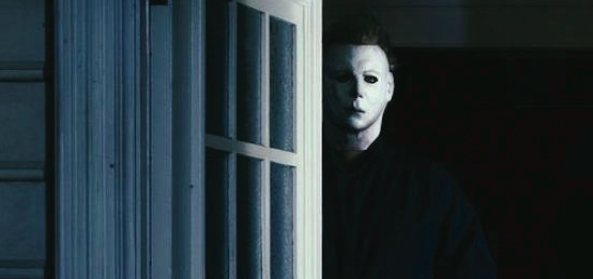“Halloween” Remake Lacks Scare Tactics

A Still from the “Halloween” Remake
I’ve never been quite convinced the slasher genre classifies as horror. Thankfully, the gory scenes in “Halloween” are sporadic and only difficult to watch for a moment or two. Indeed, though “Halloween” definitely has its gruesome moments, it ultimately falls short of frightening.
I admit, I haven’t seen the iconic 1978 original, nor have I seen the nine other sequels/ remakes that followed it. I wish I had, for better context and appreciation. Rotten Tomatoes’ critic consensus states that “Halloween” (1978) “set the standard for modern horror films.” That’s a pretty bold claim. Now, forty years later, the original Laurie Strode (Jamie Lee Cur- tis) and Michael Myers (Nick Castle) return. There’s a lot riding on this film, especially years after supposedly disappointing and confusing additions to the franchise.
The sequel apparently acts as though the other sequels never happened, so it literally gives itself a fresh slate. Strode is now a grand- mother; she is twice divorced was never able to regain custody of her daughter Karen (Judy Greer). Other than her granddaughter’s efforts to maintain contact, Strode is not welcome in Karen’s family. Strode’s survivor trauma is high- lighted in her obsession to prepare for Myers’ return. We find out that she has even prepared her daughter to survive and fight back as well. When Myers escapes a bus crash meant to transport him, everyone’s skills–and of course, lives–are put to the test.
Though I didn’t find the movie scary, I do think there was plenty of old-school suspense, and I did want the characters to outrun and outsmart Myers. Myers, however, didn’t particularly appeal to me as a villain: he’s described as “pure evil,” with seemingly no motivation for his murderous cruelty. He just wasn’t interesting – and maybe that’s due to my lack of “Halloween” experience/expertise. One thing that did catch my eye, however, was his strange-but-casual avoidance of killing children. It’s the only thing that adds any layer of complexity to his character. Otherwise, Myers is just a tall, strong, one-dimensional mystery.
I understood that “Halloween” is meant to pay tribute to its predecessor, and it seems to have done this well. The title sequence, music and overall style is meant to remind us of the late seventies original, despite this film’s taking place in present day. I couldn’t tell if the dialogue was also purposely cheesy or just badly written. Given that Danny McBride, an American actor and HBO star, was one of the screenwriters, I’ll give him the benefit of the doubt and accept the former.
What really sold the movie for me was the ending, for one reason: female empowerment. The ending itself is rather ambiguous–to leave room for potential sequels—but the moments leading up to it are so satisfying. The narrative of Strode’s trauma throughout the story is significant for many reasons, one being that we never get to see the emotional aftermath of a character who is preyed upon as violently as she is.
If you can, I suggest watching now-classic 1978 film before venturing to this one, but if you don’t, watch this anyway. At the very least, it’s a 105 minute-long thrill. I should note, however, that I was repeatedly bothered by one pressing question: why doesn’t Judy Greer ever get to be the protagonist? She’s more than capable. Let me know if you have an answer.
Contact Gloria Han at [email protected].






